

.png)
Janet Epp Buckingham, Markus Hofer and Gaetan Roy, from the World Evangelical Alliance, speak on behalf of churches at the United Nations in Geneva. What issues do they address?
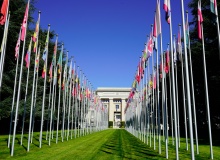
Upholding the worth and dignity of all human beings is hard work, but it is an essential part of our responsibility to represent Jesus in a hurting and divided world.
.jpg)
Eighty years ago, the United Nations was conceived within a moral atmosphere deeply permeated by Christian thought. Yet the vital role that Christians played in this vision is largely forgotten.
.jpg)
An expert committee considers that the right to choose and not be manipulated is not sufficiently guaranteed for people with disabilities. The French government defends its position.
.jpg)
The United Nations has designated August 22 each year as its International Day Commemorating Victims of Acts of Violence Based on Religion or Belief. This should be an important day on the Christian calendar.
.jpg)
The WEA representative to the UN Human Rights Council urges a solution to the case of a church in Rome and another in Albano Laziale.
copiaCropped.jpg)
Most of those killed were Christian farmers who stayed at a centre for displaced people that was set on fire. The attacks lasted for five days.
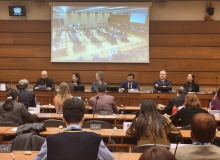
“Religious freedom gives independence, reduces harassment and acknowledges societal acceptance”, says the UN special rapporteur on FORB at an event organised in Geneva.
.jpg)
The Ugandan Julia Sebutinde was the first African woman to sit on the United Nations judicial institution.
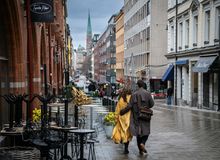
The Swedish, European and World Evangelical Alliances sent a joint report on asylum seekers, conscientious objection, and hate speech, among other issues.
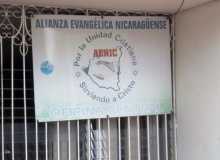
In a letter delivered to the Nicaraguan embassy in Spain, the Spanish Evangelical Alliance expresses its concern about the “harassment and demolition of freedoms” in the Central American country.
.jpg)
At the United Nations Human Rights Council, the World Evangelical Alliance points out the obsolete procedures through which religious minorities must relate to the State.
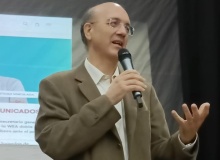
The public image of Spain is damaged by the lack of response to the discrimination of pastors without a pension, explains the secretary general of the Spanish Evangelical Alliance.
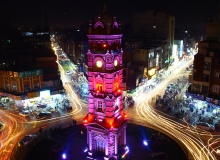
United Nations experts say Christian and Hindu girls remain particularly vulnerable to forced religious conversion, abduction, trafficking, child marriage, domestic servitude and sexual violence.
.jpg)
From the UN's views on LGBT issues and religious freedom to evangelical movements in Europe tackling issues of the day. These are the ten stories you've read and shared the most this year.
.jpg)
In a central place of the ‘Blue Zone’ in Dubai, 50 faith groups organise dozens of events. Evangelical environmentalists told Evangelical Focus what they plan to do at the large UN conference.
.jpg)
Aspects of the anti-Separatism law of 2021 “undermine freedom of religion”, says the World Evangelical Alliance at the Human Rights Council in Geneva.
Cropped(1).jpg)
An event on the Manipur violence in India organised by the World Evangelical Alliance at the UN in Geneva gets worldwide attention.
.jpg)
Wissam al-Saliby of the World Evangelical Alliance met Victor Madrigal-Borloz and calls for dialogue after a controversial report on religious freedom and LGBT rights.
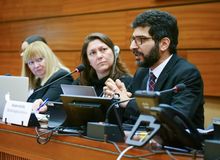
“We are not against sanctions but for human rights”, says the World Evangelical Alliance representative at the UN Human Rights Council.
.jpg)
Three Christian voices comment on the UN Climate Conference in the United Arab Emirates at the end of 2023. “It is vital that we end the fossil fuel industry’s influence over climate policy”.
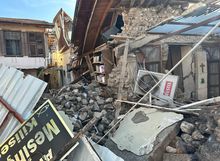
Experts warn that there is “a real danger of a secondary disaster”. The EU leaders officially offer more help and the first UN aid convoy reached northern Syria.
.jpg)
The Independent Expert on Sexual orientation and gender identities speaks of “religious narratives” which “repress sexual and gender diversity and promote heteronormative norms”. Religious freedom groups warn against using SOGI policies to shape faith doctrines.

In 2 reports submitted to the Committee on the Rights of the Child, the Protestant Evangelical Committee for Human Dignity asks to abolish surrogacy and ban minors’ access to pornography.
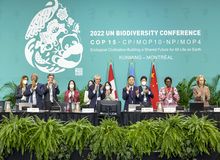
The WEA participated in the UN Biodiversity Conference, where 188 countries approved “measures deemed critical to addressing the dangerous loss of biodiversity”.

Las opiniones vertidas por nuestros colaboradores se realizan a nivel personal, pudiendo coincidir o no con la postura de la dirección de Protestante Digital.